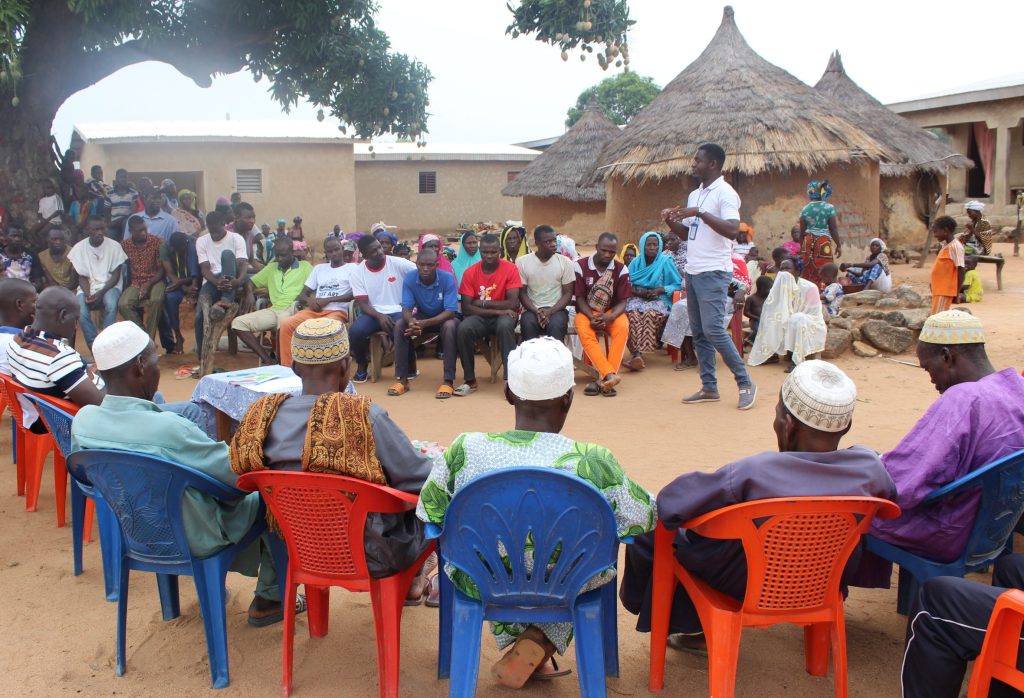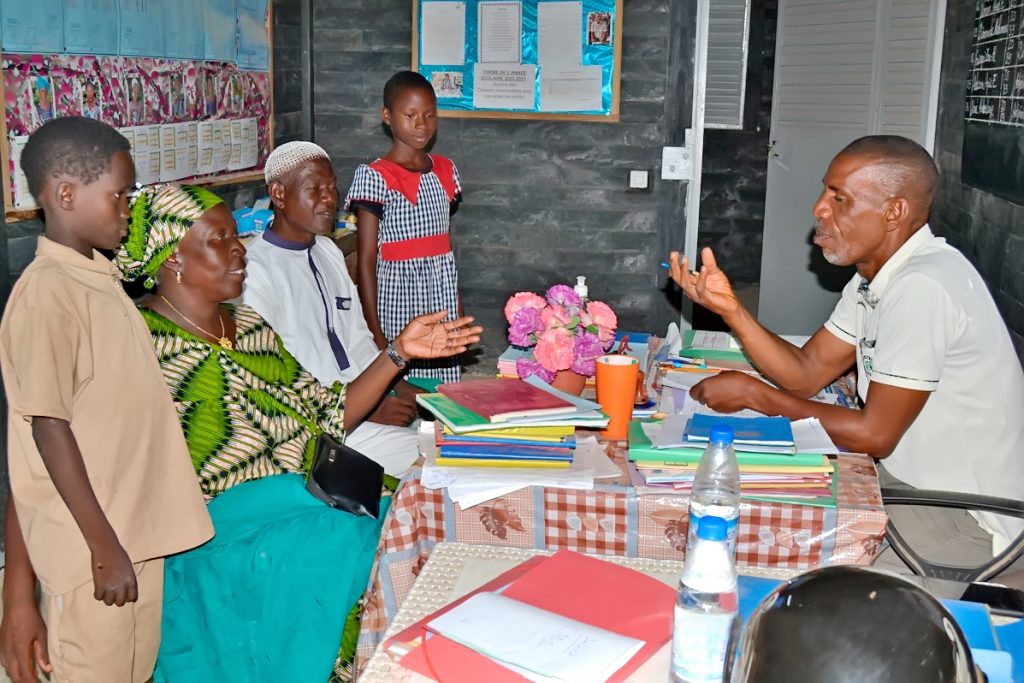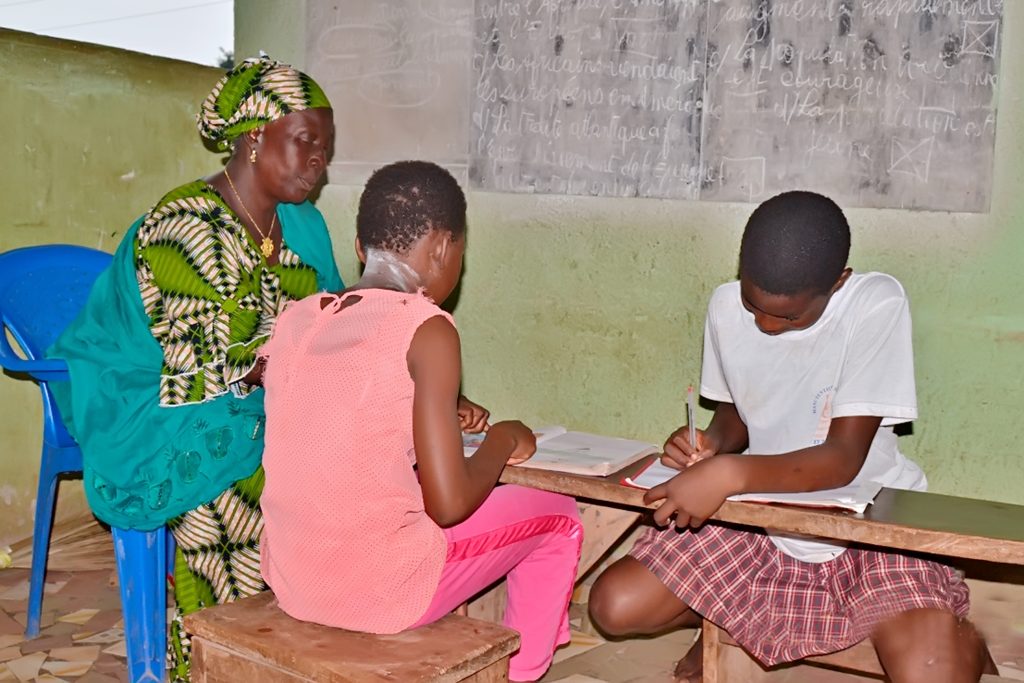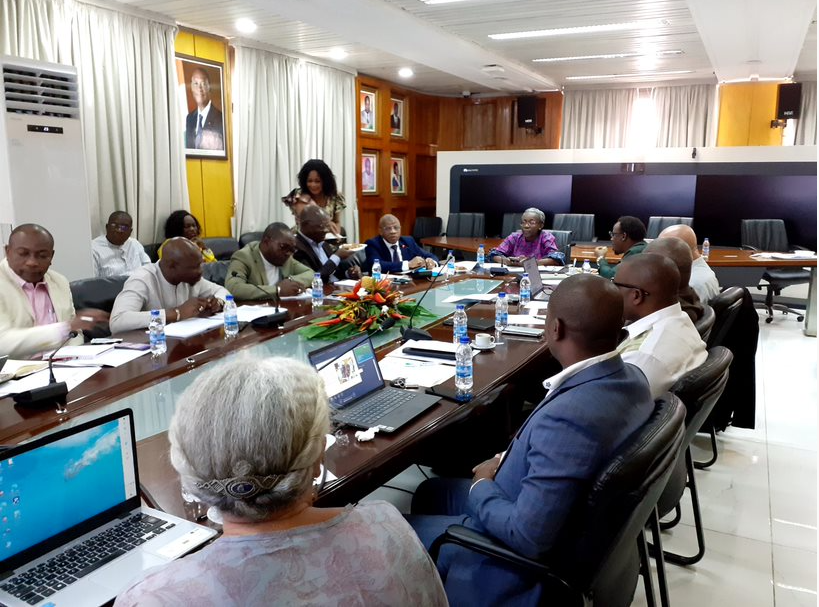The educational challenges of the Denguélé district
The Denguélé district is located in the north of Ivory Coast. Here, the majority of the population lives off agriculture, often in precarious conditions, and socio-cultural obstacles are still a hindrance to schooling, particularly for girls. The infrastructure is also weak: around 80 per cent of schools are without electricity, 35 per cent of schools have no functioning latrines and half of the schools have no access to water.
This is why AVSI Ivory Coast has launched the "Building an Education Village" project supported by the San Zeno Foundation.
In addition to involving 6,000 students, the project also includes specific actions to rehabilitate schools, support educational institutions, train teachers and involve parents in their children's school life.
Naminata Sylla, Diarrassouba is one of the parents involved. Having not attended school, she felt do not have the necessary tools to follow her children in their studies. For her, the schooling of children is the responsibility of the teachers, a perception that is widely shared in her community, where parents feel that their responsibility is limited to the task, in some cases already extremely hard, of ensuring adequate food for the whole family.
It is in order to help mothers and fathers feel that they are the protagonists in their children's education that AVSI Ivory Coast organized an awareness-raising event aimed at them, to focus on their role in school life.

Raising awareness was important for us parents, it allowed us to better understand our role in accompanying our children in their studies.
Naminata Sylla Diarrassouba
After participating in one of these awareness-raising events, Naminata Sylla felt more involved in following her children at school. She very often goes with her husband to talk to the teachers, to inquire about their children's progress and how they experience the school, the relationship with the teachers and the other students.

Photo by Dominique Gbeadagbeu for AVSI
Naminata Sylla now feels that, with simple gestures, she can be present and involved in her children's studies. She enjoys listening to the children tell her about their days on their way home from school. During the lunch break she picks up her children in order not to miss any of these small moments.
What I enjoy most is listening to my children talk about their days. I did not go to school, so it is a joy for me to accompany my children through this process. This awareness has opened my mind. Teachers cannot educate our children for us, it is a partnership, I don't hesitate to ask for help, to go to school when in doubt. I want my children to be able to pursue studies that allow them to do what they want. That is why I encourage them.
Naminata Sylla Diarrassouba

Photo by Dominique Gbeadagbeu for AVSI
"This project is important for AVSI because it touches its field of action quintessentially: education. In Ivory Coast over the years, we have worked with more than 600 public primary schools in rural areas. The project is also important for AVSI because it allows us to contribute to making everyone a protagonist of their own development through a constant effort and thanks to the ability to transform what they receive: children but also adults. Naminata Sylla's story tells precisely this: a mother felt involved, empowered to follow her children's schooling and now it’s her who feels the importance of her contribution to their education, she lives her role as a parent with responsibility and pride. This is how AVSI wants to ensure the future sustainability of the results we have set ourselves with the project." explains Bamba Lassiné, head of AVSI Côte d'Ivoire.
Building an Education Village - the AVSI and San Zeno Foundation project
The Ivorian school system is faced with many difficulties that negatively affect the quality of students' education. This initiative supported by the San Zeno Foundation aims in three years to reach 50 schools, more than 30,000 people and the staff of the structures of the Ministry of Education and National Literacy. The goal is to improve access to inclusive education and improve the scholastic skills of pupils in public primary schools in the Denguélé district.
The activities will be:
- Supply of teaching materials to students
- Organization of catch-up courses for students
- Training and support of 320 participants in the school system employed by the Ministry of Education (teachers, heads of pedagogical units, education inspectors)
- Rehabilitation of school infrastructure (classrooms, water points and latrines)
- Setting up 150 mobile libraries
- Awareness-raising of 20,000 adults on their role in children's education (parents, community leaders, members of Coges - the school management committees)
The official launch of the project with the Ivorian Ministry of Education
Upon the invitation of the Ministry of National Education and Literacy of Côte d'Ivoire, AVSI presented the main elements of the project to the Cabinet of the Minister on Friday 9th June 2023.

This meeting brought together the main Central Directorates of MENA, the Inspectorate General and the Minister's Technical Advisors, and was chaired by the Deputy Head of Cabinet. The exchanges made it possible to appreciate the quality of the collaboration between the two institutions, as well as the actions already carried out, and to reiterate the importance of investment in training.




